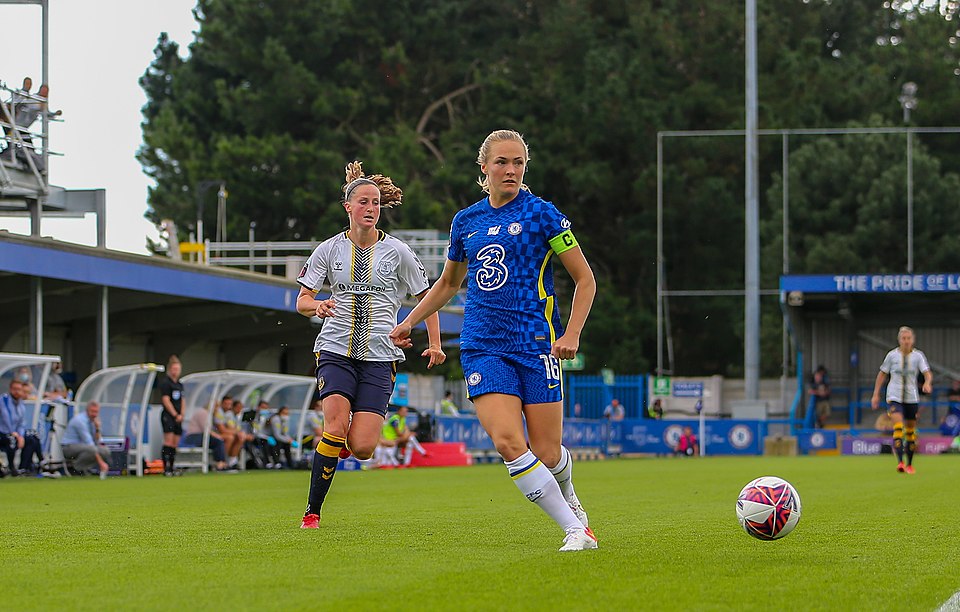Sporting Pride: Queer leaders from across the world of sport
The recent 2024 Paris Olympics saw a record increase in queer participants, with almost 200 members representing their country – an increase of over 100 from the 2016 games. While many of these athletes are female, in fields such as football (46), basketball (17), or field hockey (15), last year there were more out men than ever (20) at the events. “Given how many lesbians are in women’s elite level sports, it’s just been a more welcoming place than men’s sports for a long time,” said Cyd Zeigle, co-founder of sports news website, Outsports.
Clearly, the presence of other queer athletes has made it easier for others to follow suit. Football players such as Magdalena Eriksson and Pernille Harder, an out couple currently playing for Bayern Munich are clear examples of successful athletes advocating for the queer community. Both players have been triumphant professionally at both a domestic and national level. Eriksson, who captained Chelsea FC to victory for all four of her seasons in charge, also plays for Sweden, who are currently ranked fifth in the FIFA World Ranking, and recently won silver at the 2020 Tokyo Olympics. Pernille Harder became the first to win the UEFA’s Women’s Award twice and is currently Denmark’s top goal scorer, yet still makes time to advocate for queer people in sport.
The percentage of queer players coming out at major events like the Olympics increases every year
In terms of their advocacy, as part of the charitable movement, Common Goal, 1% of the pair’s salary contributes to the support of LGBTQ+ sporting youths. Equally, on Valentine’s Day a few years ago the pair opened up their messages to followers struggling with their sexuality. “I know how much it means to our fans that Pernille and I are open about our sexuality, showing the world that our relationship is normal and should be accepted. It’s always been really important for me to stand up for what I stand for and keep my integrity. If I want to have my say, nothing will stop me from doing that. I have my platform, and I want to use it.”
It’s clear that normalising sexuality has been a key role these players have taken on, as well as other figures such as Manchester City’s Kerstin Casperij, known for her witty Instagram captions and funny posts about her wife. More so, she is an advocate for queer rights on the pitch too, kissing a wristband with the trans flag on after the recent Supreme Court ruling in the UK. “I’m so incredibly proud of the trans existence within the queer community, and I’m proud of all trans women – you are women no mater what anyone says,” she wrote in her caption following a 1-1 draw to Everton in which she scored.
Queer icons in sport help fans feel supported and represented in the games they love
England cricket icons, Nat and Katherine Sciver-Brunt, who recently welcomed a new baby boy in January, are another queer couple fighting for equality and pushing for normalisation. They’ve collaborated with the BBC a few times, sharing their struggles in coming out – particularly Katherine Sciver-Brunt – as a way to make others feel represented.
In rugby, former international referee, Nigel Owens is another example of a queer sporting figure. He is one of the few referees to be named in the Welsh Rugby Union and has refereed the most test matches in the world to this day. Clearly a prominent figure in the sport, he is also a fierce advocate for his community. Named Gay Sports Personality of the Year in 2007 and Gay Sports Personality of the Decade in 2015, Owens is highly regarded as a household name in rugby, challenging the negative stereotypes of gay men in sports such as rugby. He has even received an MBE for his dedication to sport.
Queer icons in sport help fans feel supported and represented in the games they love. These advocates show us that having others talk about their struggles in their journey and normalising their queer existence is crucial to help encourage the growth of acceptance in sport. The percentage of queer players coming out at major events like the Olympics increases every year, and this only shows the positive impact role models create on people’s ability to feel comfortable in their own sexuality.

Comments